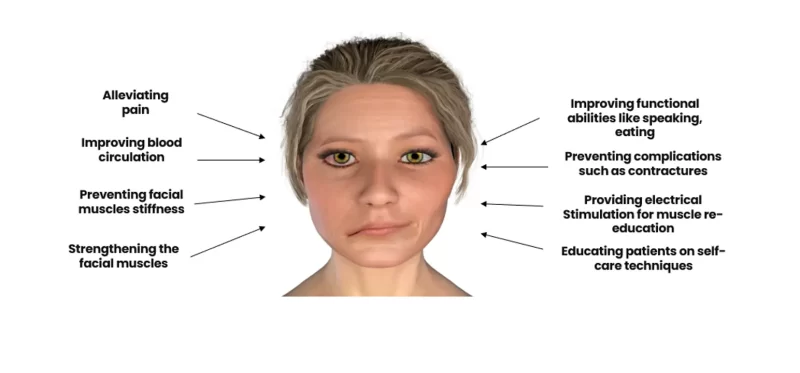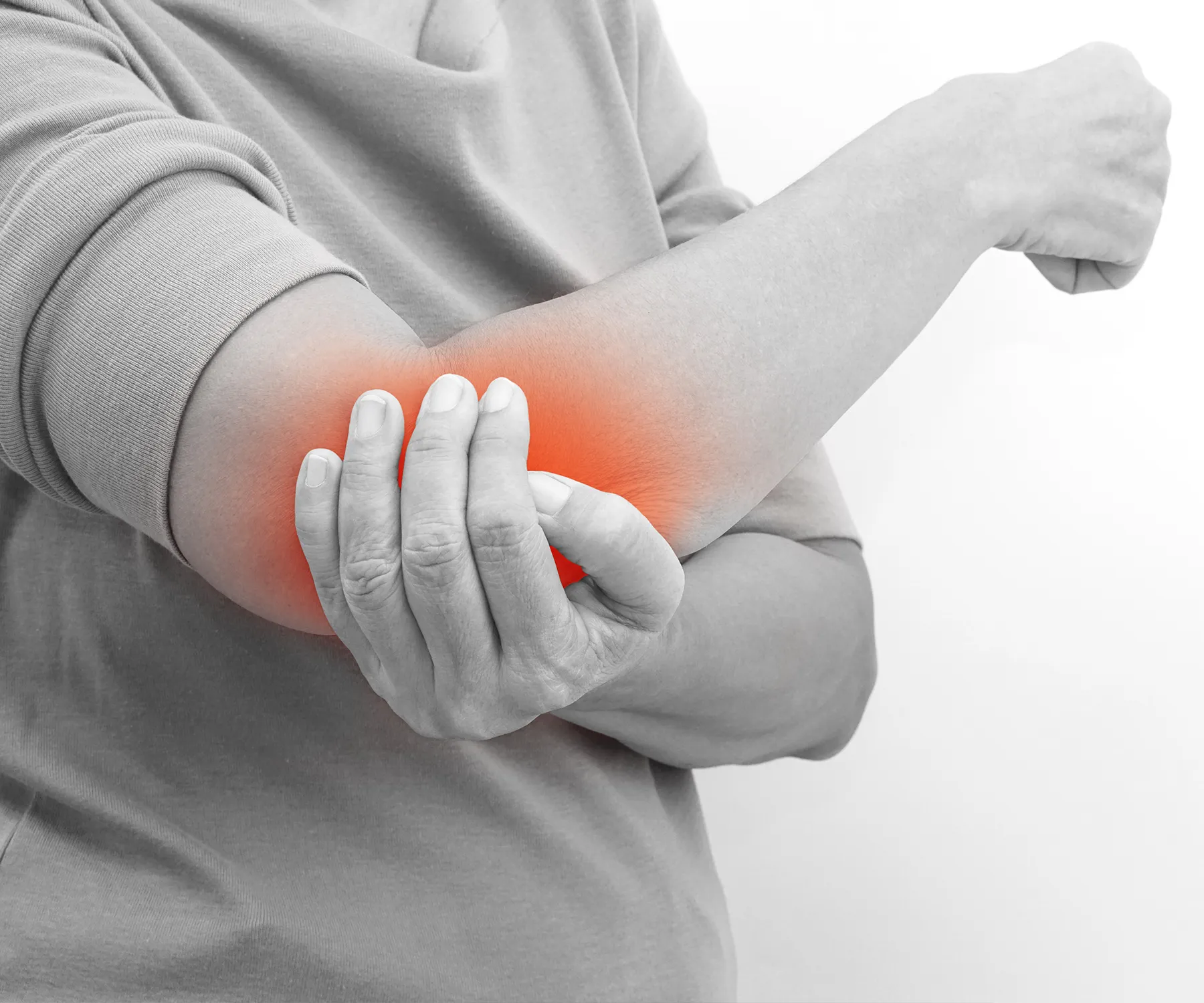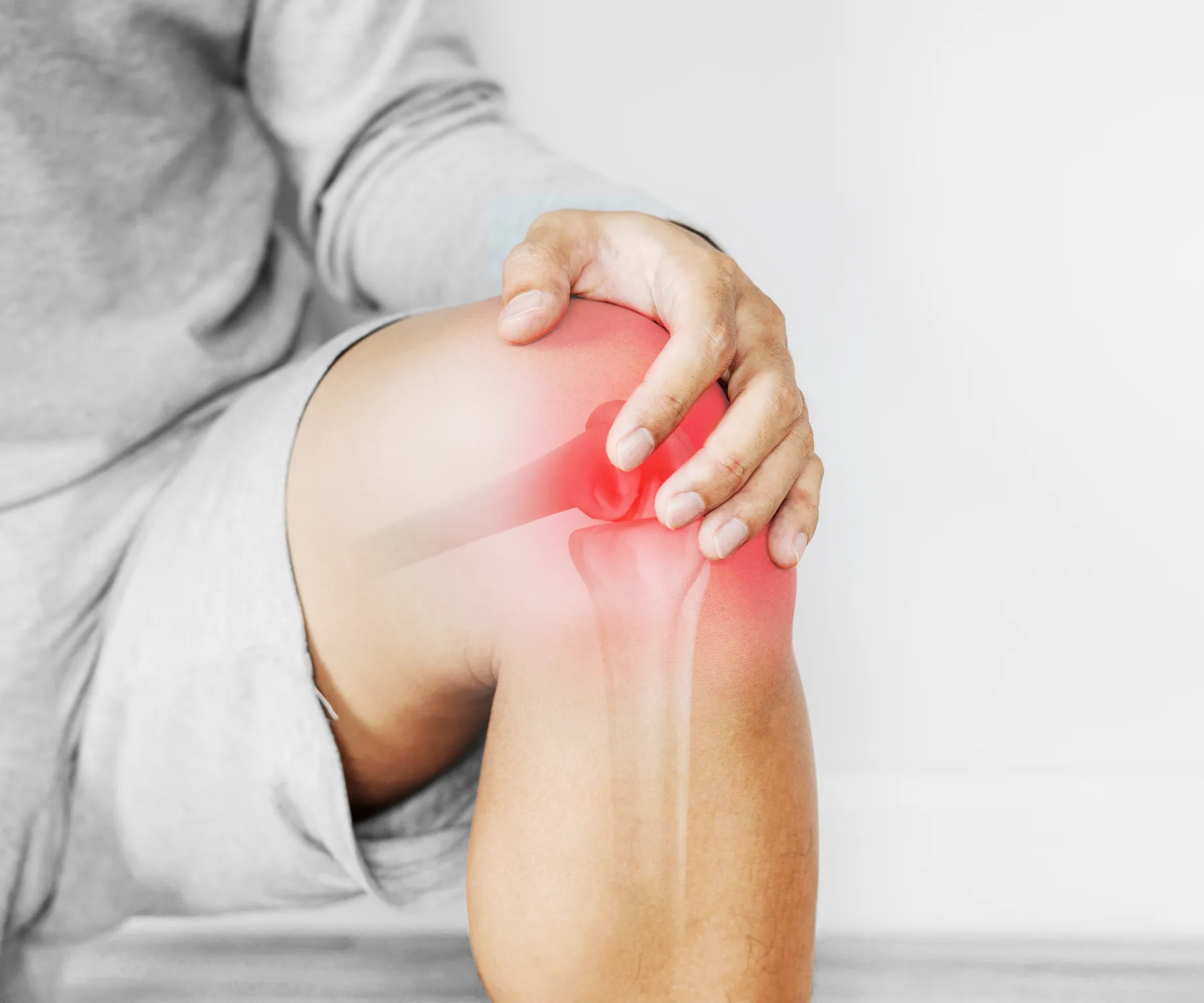Has this been happening to you lately?
Facial Weakness
Sudden weakness or paralysis of facial muscles
Facial Droop
One side of the face may appear droopy/ uneven when smiling
Loss of Eye Blink
Eye dryness and irritation
Taste Change
Altered or loss of taste sensation. Metallic taste
Increase Sound Sensitivity
Heightened sensitivity to sounds
Speech Difficulty
Challenges in forming words clearly or speaking distinctly.
Pain/ Discomfort
Discomfort around the ear or jaw on the affected side.
Numbness
Loss of sensation or numbness in any part of the face
What could have led to Bell’s Palsy?
While no one knows for sure what causes Bell’s Palsy, it is often linked to viruses, especially those in the herpes simplex family. Infections caused by viruses, like cold and flu viruses, are more common in the winter. This higher risk of getting viral infections may help explain why Bell’s Palsy happens more often in the winter.
How to Differentiate Between Stroke and Bell’s Palsy
When facial paralysis strikes suddenly, people get confused whether it is Bell’s Palsy or Stroke. Although facial weakness is a common feature, there are some important distinctions that might help you identify whether it is Bell’s Palsy or Stroke.
| Aspect of Comparison | Bell’s Palsy | Stroke |
| Onset | Sudden onset, often overnight | Sudden or gradual onset |
| Additional Symptoms | Typically affects only the face | May involve limb weakness, slurred speech, confusion, and more |
| Facial Involvement | Affects the entire half of the face, including forehead and eyelids | Usually affects only the lower half of the face |
| Pain | May be associated with pain around the ear or jaw on the affected side | Facial weakness is usually painless |
| Eye Symptoms | May cause excessive tearing and difficulty closing the affected eye | Eye symptoms are less common |
| Sensation | Altered taste sensation on the front two-thirds of the tongue may occur | No specific changes in taste sensation |
| Other Neurological Symptoms | Not typically associated with other neurological symptoms | Often accompanied by other neurological deficits |
Our Physiotherapy sessions will help you recover by

FAQs related to Bell’s Palsy
What does Bell’s Palsy mean?
Bell’s Palsy is a disease that makes one side of the face suddenly weak or paralyzed for a short time. It happens when the face nerve gets inflamed, which usually makes the mouth hang down or makes it hard to close the eye on the affected side
How long does Bell’s palsy last?
For the majority of individuals, the condition is only temporary. Symptoms often begin improving within a few weeks. Complete recovery occurs within six months. A small amount of individuals continue to have symptoms of the condition for the rest of their lives. In rare instances, the condition can recur.
Is Bell’s Palsy contagious?
No, Bell’s palsy does not spread. It is thought to be caused by an illness of the facial nerve, which is often caused by a virus like the herpes simplex virus. The disease itself, though, does not spread from person to person.
What kind of care should I get for Bell’s palsy?
Medication to reduce swelling and physical treatment to strengthen facial muscles are common ways to treat Bell’s palsy. To keep the eye from drying out, you may also be told to use eye drops or patches to protect it. In some cases, healing happens on its own over time. Talking to a medical worker is important for getting personalized advice and the right care.
What are the bad effects of the medicine for Bell’s palsy?
Some of the most common side effects of medicines for Bell’s palsy are sleepiness, dizziness, and mild stomach problems. Individuals may sometimes have allergic reactions or more serious problems, so it’s important to talk to a medical professional for personalized advice and tracking.
What should I eat when I have Bell’s palsy?
If you have Bell’s palsy, you should eat a balanced diet full of whole grains, fruits, veggies, lean proteins, and water. Foods like fish, chicken, nuts, and beans that are high in vitamins B12 and zinc may help keep your nerves healthy. For good health, stay hydrated and stay away from packaged foods and too much sugar.
When should I see a doctor about Bell’s palsy?
Getting medical help for Bell’s palsy as soon as possible, usually within 72 hours, makes treatments more effective. If you notice rapid facial weakness or drooping, trouble closing your eye, or a drooping smile, you should get help right away.
What’s the difference between a Stroke and Bell’s palsy?
Bell’s palsy is a brief paralysis of the face that is often caused by viruses and makes one side of the face weak or droop. A stroke, on the other hand, happens when blood flow to the brain is interrupted. This can cause numbness, facial weakness, and trouble speaking, among other symptoms that may last longer and require immediate medical care. Read this article for more information – https://telephysio.in/facial-paralysis-is-it-bells-palsy-or-stroke/
Does Bell’s palsy change how the brain works?
No, Bell’s palsy does not directly change how the brain works. This disease happens when nerves in the face become inflamed, which affects the muscles in the face. The brain doesn’t change, and most people with Bell’s palsy get better on their own over time.
Who might get Bell’s palsy?
Anyone can get Bell’s palsy, but people aged 15 to 60 are more likely to have it. People who have had lung infections, diabetes, or a history of the disease in their family may be a little more likely to get it. Also, women who are pregnant and in their third trimester have a slightly higher chance of getting Bell’s palsy.
How does exercise help people with Bell’s palsy get better?
Physiotherapy helps people with Bell’s palsy get better by focusing on exercises for the face and muscles. It makes muscles stronger, more coordinated, and easier to control. This makes the face less weak and more even all around. People with Bell’s palsy can get their facial muscles to work normally again with regular physiotherapy lessons.
How to find relief during Bell’s Palsy?
If you have Bell’s Palsy, here are some tips to find relief:
1. Protect the eye that you are unable to close. Use eye drops throughout the day and ointment at night to help keep the eye moist.
2. Take a pain reliever to help you cope with the pain.
3. Putting a washcloth that has been soaked in warm water on the face multiple times per day will help with pain.
4. Make sure to adhere to the advice of your physical therapist to strengthen the facial muscles and do the correct exercises.
5. In cases where the condition tends to keep coming back, it might be that there is a genetic predisposition to Bell’s palsy.
Disclaimer: The suggestions given are based on general assumptions. Do visit a physiotherapist for complete treatment tailored to your needs.







